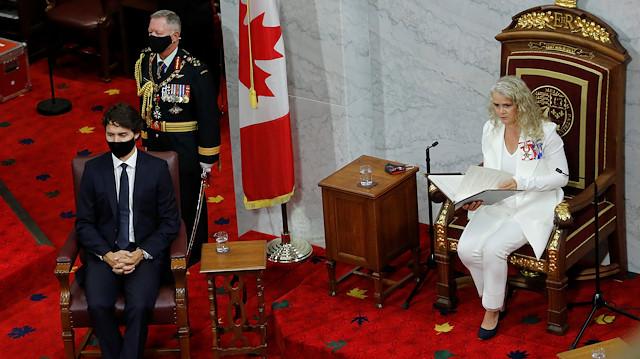
Investigation finds damning environment for staff
Canada’s governor general resigned Thursday after a damning report described a toxic workplace that included staff bullying.
Both Julie Payette, a former Canadian astronaut who was appointed as British Queen Elizabeth’s representative in 2017, and her secretary quit after a six-month investigation into harassment allegations was completed.
The Prime Minister’s Office declined to comment on the resignations, but Prime Minister Justin Trudeau said when the investigation began that he would decide Payette’s fate depending on the report’s findings.
The investigation was launched following a Canadian Broadcasting Corporation news report last summer detailing the testimony of a dozen public servants and former members of the governor general’s staff that claimed Payette and her secretary and close friend, Assunta di Lorenzo, publicly humiliated staff at Rideau Hall, the governor general’s official residence. It is also the official Canadian residence of Queen Elizabeth.
The resignation of the governor general has made headlines across Canada.
While the governor general’s role is more ceremonial in modern times, it is still a high-level position.
As the Queen’s head of state, the governor general summons and dissolves Parliament, usually at the request of the prime minister, and gives royal assent to make acts of Parliament into law. She is appointed by the Canadian prime minister.
Queen Elizabeth is the sovereign of 15 countries in the Commonwealth of Nations, including Canada, Australia, New Zealand and the Bahamas, and she is represented by the governor general. The countries are, however, sovereign states that at one time were ruled by England.
The Canadian government said Richard Wagner, chief justice of the Supreme Court of Canada, will temporarily fill the position.







